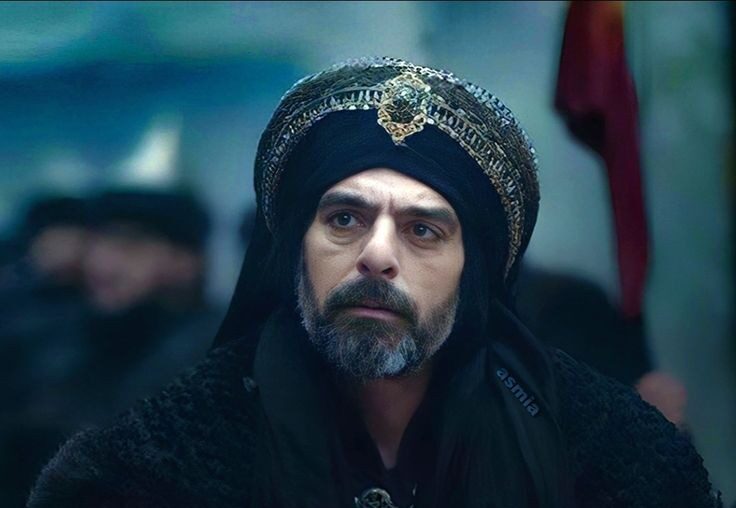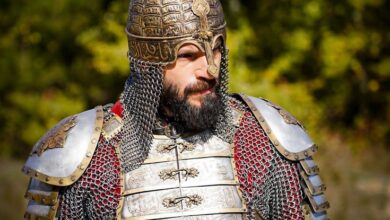Sultan Nuruddin Zengi: The Forgotten Hero of Islam
When we think of the Crusades, names like Saladin and Richard the Lionheart dominate the narrative. But behind Saladin’s legendary rise stood a man whose legacy was just as profound—Sultan Nuruddin Zengi, the unifier, the warrior-scholar, and the just ruler who reshaped the Muslim world.
This isn’t just another historical account. This is the story of a leader who fought not for glory, but for justice—a man whose footsteps echoed in the halls of mosques as much as they did on the battlefield.
The Boy Who Would Become a King
Born in 1118 CE in Mosul, Nuruddin was the son of Imad ad-Din Zengi, a fierce Turkic warlord who struck the first major blow against the Crusaders by capturing Edessa in 1144. But Nuruddin wasn’t just his father’s son—he was something more.
While other princes indulged in luxury, young Nuruddin immersed himself in Quranic studies, Hadith, and military strategy. He wasn’t just being groomed to rule—he was being prepared to lead a jihad (struggle) not just against invaders, but against corruption and injustice.
When his father was assassinated in 1146, the Muslim world braced for chaos. But Nuruddin, now ruler of Aleppo, proved he was no ordinary king.
The General Who Never Lost a Battle
Nuruddin’s military genius wasn’t about brute force—it was about strategy, patience, and unbreakable faith.
1. The Reclamation of Edessa (1146)
The Crusaders thought they could retake Edessa after his father’s death. They were wrong.
Nuruddin crushed their forces, sending a message: The Muslims would not retreat.
2. The Bloodless Conquest of Damascus (1154)
Damascus was a rich, independent city—sometimes even allying with Crusaders against fellow Muslims. Many warlords would have sacked it. But Nuruddin did something unheard of:
- He besieged the city but avoided bloodshed.
- He convinced its people that unity was better than division.
- When Damascus finally opened its gates, he entered not as a conqueror, but as a protector.
3. The Rise of Saladin—Nuruddin’s Greatest Legacy
Nuruddin sent his most trusted general, Shirkuh, to liberate Egypt from Crusader influence. With him went a young Kurdish officer—Salahuddin Ayyubi (Saladin).
When Shirkuh died, Saladin took command. Though history remembers Saladin as the hero of Jerusalem, it was Nuruddin who made his rise possible.
(And yes, there was tension later—Saladin grew powerful, and Nuruddin suspected ambition. But that’s another story.)
The King Who Wore Wool, Not Gold
What set Nuruddin apart wasn’t just his victories—it was how he ruled.
1. Justice for the Weak
- He abolished oppressive taxes.
- He sat in open court, listening to the complaints of peasants.
- Once, when a poor woman accused him of injustice, he publicly apologized and compensated her.
2. A Builder of Civilization
- He constructed hospitals where doctors treated the poor for free.
- He built madrasas, turning Damascus into a center of Islamic learning.
- He dug wells, caravanserais, and public baths—because a true leader serves his people.
3. A Man of Unshakable Faith
- He slept on a simple mat, dressed in coarse wool.
- He memorized the Quran and spent nights in prayer.
- His famous words: “I fear Allah more than I fear the Crusaders.”
Death of a Saintly Warrior
In 1174, at just 56, Nuruddin died in Damascus. Some say it was illness. Others whisper of poison. But his legacy wasn’t just in lands conquered—it was in hearts transformed.
When Saladin entered Jerusalem in 1187, it was Nuruddin’s dream he fulfilled.
Why Does Nuruddin Matter Today?
In an age where Muslim rulers are often either tyrants or puppets, Nuruddin stands as a reminder:
- True power lies in justice, not oppression.
- Unity is stronger than division.
- A leader’s strength is measured by his piety, not his wealth.
He wasn’t just a king. He was a guardian of Islam.
Final Thought
History books may overlook him, but Nuruddin Zengi’s story isn’t just about the past—it’s a blueprint for Muslim leadership today.
Would modern rulers dare to follow his example?
What part of his life inspires you most? Let me know—I’d love to discuss!





